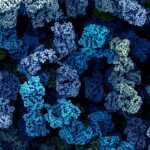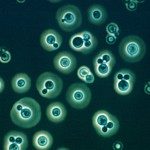Link to Pubmed [PMID] – 39322754
Link to DOI – 10.1038/s44318-024-00250-x
EMBO J 2024 Sep; ():
RNA stability, important for eukaryotic gene expression, is thought to depend on deadenylation rates, with shortened poly(A) tails triggering decapping and 5′ to 3′ degradation. In contrast to this view, recent large-scale studies indicate that the most unstable mRNAs have, on average, long poly(A) tails. To clarify the role of deadenylation in mRNA decay, we first modeled mRNA poly(A) tail kinetics and mRNA stability in yeast. Independent of deadenylation rates, differences in mRNA decapping rates alone were sufficient to explain current large-scale results. To test the hypothesis that deadenylation and decapping are uncoupled, we used rapid depletion of decapping and deadenylation enzymes and measured changes in mRNA levels, poly(A) length and stability, both transcriptome-wide and with individual reporters. These experiments revealed that perturbations in poly(A) tail length did not correlate with variations in mRNA stability. Thus, while deadenylation may be critical for specific regulatory mechanisms, our results suggest that for most yeast mRNAs, it is not critical for mRNA decapping and degradation.







